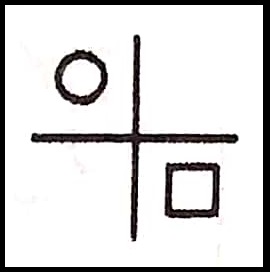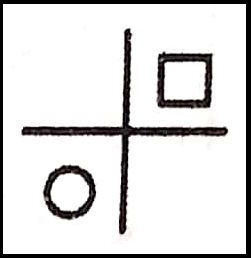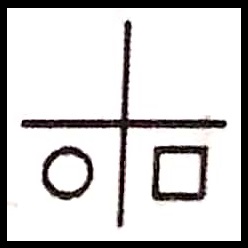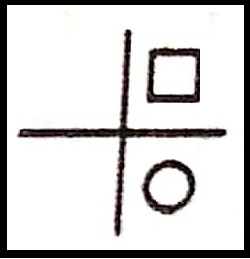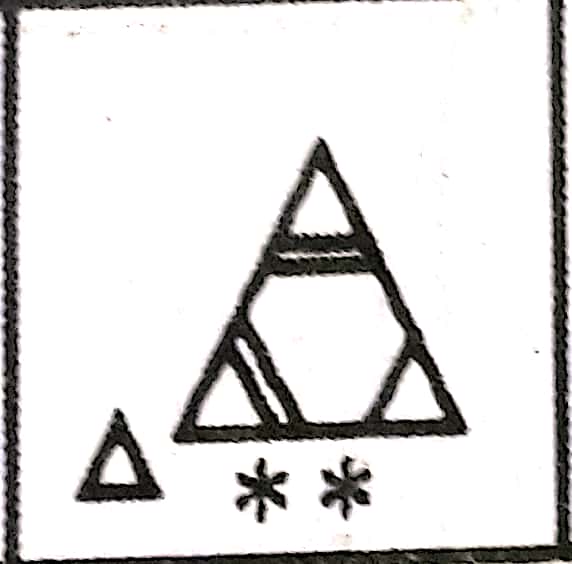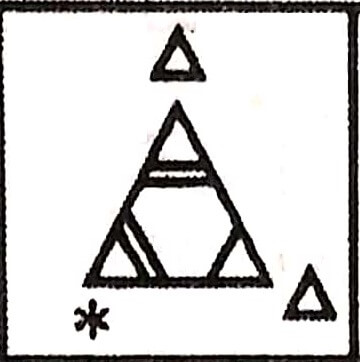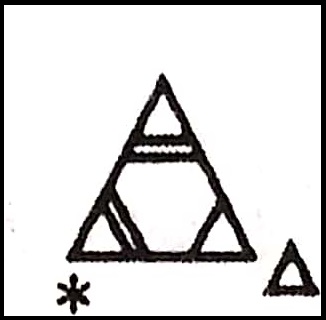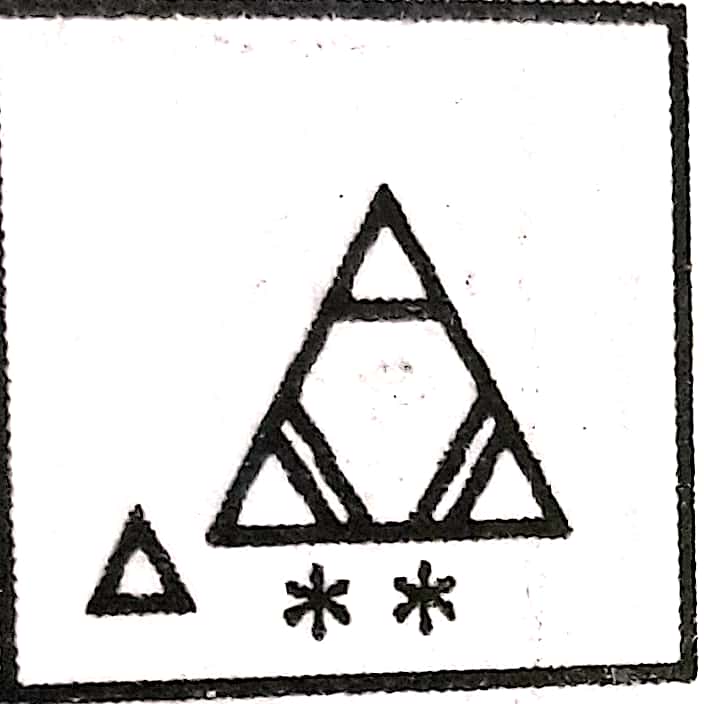Non Verbal Series Four Figures
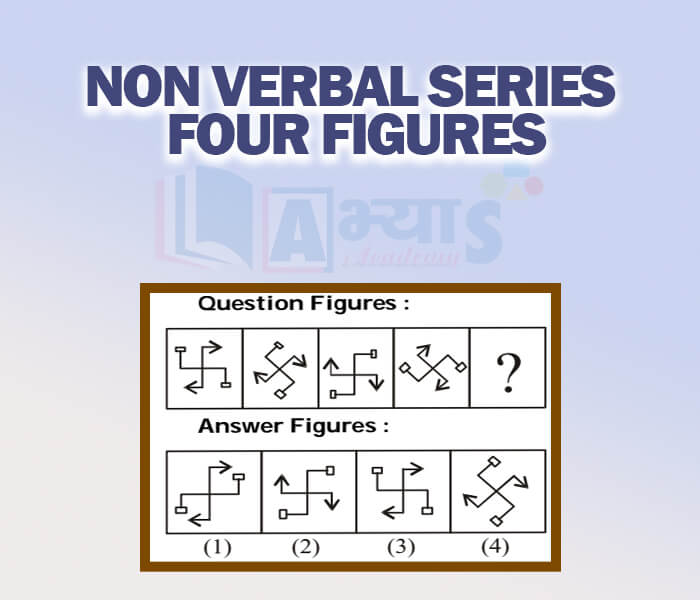
Non Verbal Series - Four Figures
Non-Verbal Series
It consists a series of figures which change according to a fixed logical pattern as we go from one figure to the next. The candidate is identify the pattern and then choose the figure from the options which would be the next to continue the same pattern. Let us consider a few examples to clarify the things.
Four Figure Series: These type of questions are largely similar to those discussed in five figure series concept; the only difference being that in this case, the series or the sequence is indicated by four problem figures and it is required to select a figure from amongst the options, which would follow the problem figure to continue the series.
Illustration: The following question consists of four problem figures and four options. Select the option which has a figure which will continue the series established by the four problem figures .

|
A |
B |
C |
D |
Answer : B
Solution: On analysing the figure we see that
So in the next figure the square has moved to the adjacent portion in anti-clockwise direction.because the circle and square are moving alternately. This figure is shown in option B
Hence B is the correct option.
Illustration: The following question consists of four problem figures and four options. Select the option which has a figure which will continue the series established by the four problem figures .

|
A |
B |
C |
D |
Answer: C.
Solution: On analysing the figure we see that
So the general rule explaining the series is that the number of asterisks '*' decrease by one in each step. The small triangles moves to the next corner of the larger triangles in a clockwise direction . One line is added inside the larger triangle in a clockwise order in each step .The figure which satisfies the rule is figure C
Hence C is the correct option.
Directions : In the following questions, there are two sets of figures - the problem figures and the answer figures. The problem figures are presentedin two units. The first unit contains two figures, the second unit contains figure and a question mark. You have to find out which one of the answer figures marked (1) to (4) should come in place of the question mark (?) .
| |||
| Right Option : C | |||
| View Explanation | |||
Directions : Each of the following questions consists of four problem figures marked A,B,C and D and five answer figures marked 1,2,3,4 and 5 .Select a figure from amongst the answer figures which will continue the series established by the four probelm figures .
| |||
| Right Option : B | |||
| View Explanation | |||
Each of the following questions consists of four problem figures marked A,B,C and D and five answer figures marked 1,2,3,4 and 5. Select a figure from amongst the answer figures which will continue the series established by the four problem figures .
| |||
| Right Option : C | |||
| View Explanation | |||
Students / Parents Reviews [10]
It was a good experience with Abhyas Academy. I even faced problems in starting but slowly and steadily overcomed. Especially reasoning classes helped me a lot.

Cheshta
10thOne of the best institutes to develope a child interest in studies.Provides SST and English knowledge also unlike other institutes. Teachers are co operative and friendly online tests andPPT develope practical knowledge also.

Aman Kumar Shrivastava
10thMy experience was very good with Abhyas academy. I am studying here from 6th class and I am satisfied by its results in my life. I improved a lot here ahead of school syllabus.

Ayan Ghosh
8thMy experience with Abhyas academy is very good. I did not think that my every subject coming here will be so strong. The main thing is that the online tests had made me learn here more things.

Hiya Gupta
8thAbout Abhyas metholodology the teachers are very nice and hardworking toward students.The Centre Head Mrs Anu Sethi is also a brilliant teacher.Abhyas has taught me how to overcome problems and has always taken my doubts and suppoeted me.

Shreya Shrivastava
8thBeing a parent, I saw my daughter improvement in her studies by seeing a good result in all day to day compititive exam TMO, NSO, IEO etc and as well as studies. I have got a fruitful result from my daughter.

Prisha Gupta
8thI have spent a wonderful time in Abhyas academy. It has made my reasoning more apt, English more stronger and Maths an interesting subject for me. It has given me a habbit of self studying

Yatharthi Sharma
10thA marvelous experience with Abhyas. I am glad to share that my ward has achieved more than enough at the Ambala ABHYAS centre. Years have passed on and more and more he has gained. May the centre flourish and develop day by day by the grace of God.

Archit Segal
7thMy experience with Abhyas is very good. I have learnt many things here like vedic maths and reasoning also. Teachers here first take our doubts and then there are assignments to verify our weak points.

Shivam Rana
7thIt has a great methodology. Students here can get analysis to their test quickly.We can learn easily through PPTs and the testing methods are good. We know that where we have to practice











